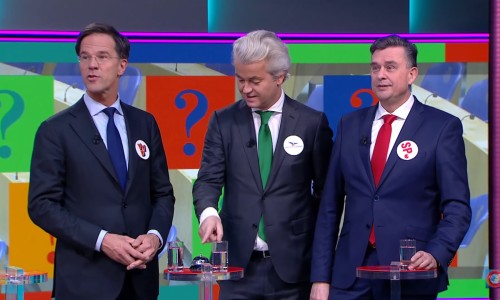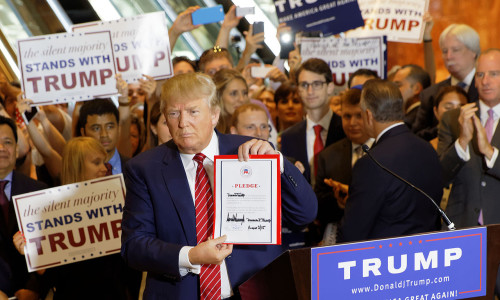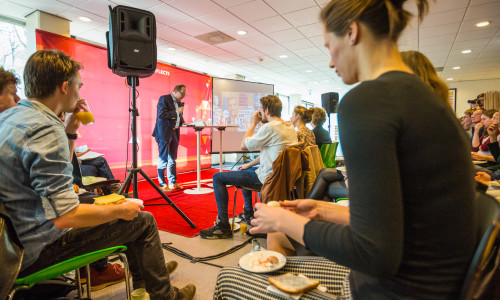‘We deserve the vote as much as anyone’
-
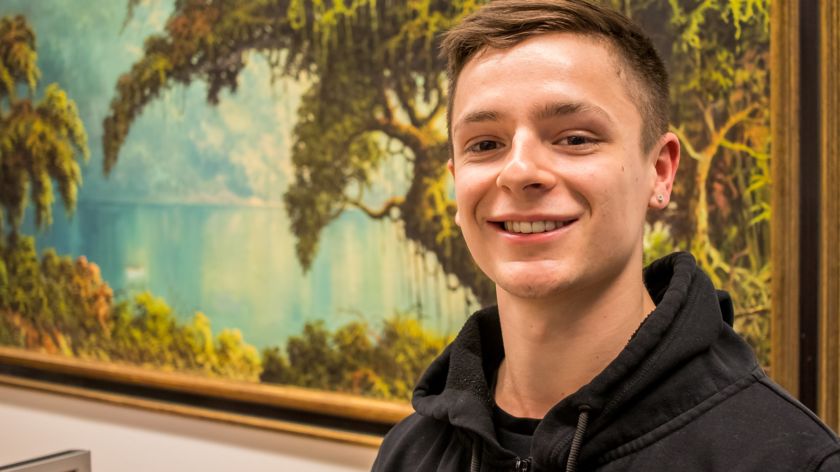 Lee Collings, photo's: Marjolein van Diejen
Lee Collings, photo's: Marjolein van Diejen
The voting pass that fell in the mailbox was a surprise for many international students. But it is true, on Wednesday, a big group of international students can vote. How do you vote in an election that is mostly in Dutch?
‘At first, when I received the piece of paper with my name on it in the mail, in Dutch, I did not realise what it was’, says Catarina Cotrim (23), a Portugese master student. ‘After I spoke about it with some friends, I found out it was a voting pass. Even the Dutch students around me were surprised that internationals can vote.’ Student Michael Holberg Oyeossi (22), from Sweden, had the same reaction. ‘It was not clear to me that I could go voting until I was invited to talk to Vox about it. I have seen some people in D66 shirts, and some posters. But that is about it, and everything is in Dutch.’
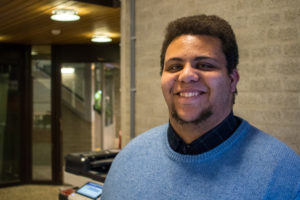
It is true that the fourteen parties who are running for the elections in Nijmegen, communicate mostly in Dutch. ‘We do have English information, but only on our website’, says Lusanne Bouwmans, candidate for D66, a party that traditionally is popular among students. The party translates the information that it finds relevant for international citizens, she says. ‘We have noticed that there is only a small group that would read an English flyer.’
Bouwmans sees a role for the municipality in involving internationals in the local elections. ‘It is important that they know they can vote, and how they can vote. Of course we can try to be the only party that communicates in English and try to win all the international votes, but these voters should know what parties they can choose from.’
‘All I knew about Dutch politics was that you guys have Geert Wilders’
GroenLinks, another party students often turn to, has made English flyers, with the exact same focus points as on the Dutch flyer. ‘We do not have an English website’, says Cilia Daemen, a candidate for the party. ‘It would be a lot of work to translate everything we do. We do tell everybody that they can e-mail us if they have questions, or come visit our party office.’
These elections are for everybody in the city, she says. ‘We have many citizens whose first language is not Dutch. It is their city too, and their right to vote. I hope they use it.’ Because Nijmegen is so close to the border and the EU becomes more important, English might become more important in the campaign, she says. ‘But I do not think we will soon campaign completely in English.’
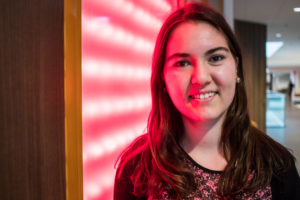
Pamphlet
Holberg Oyeossi does think it is good that international students can vote. ‘We live here, and the local government controls where we live, so it has an effect on us.’ British student Lee Collings agrees: ‘To me, it makes sense that I am allowed to vote. Our community is here, so we deserve the vote as much as anyone.’
Making a choice, however, is not easy for them. ‘Voting is hard, because I do not know anything about the parties’, says Holberg Oyeossi. ‘Before this, all I knew about Dutch politics was that you guys have Geert Wilders.’ However, he does want to vote tomorrow. ‘I asked some of my Dutch friends for help already. They told me D66 focusses on students. I live in Arnhem, and I did receive a pamphlet from D66 in English. GroenLinks is supposed to be socialist left and green party. There is a worker’s party as well, right? Now I just need to find out where I can vote.’
Out-of-the-box policies
Local politics can be important for international students, says D66 candidate Bouwmans. ‘Our party, for example, wants to make sure that educational institutions and companies work together, so people can find jobs here after they graduate. On top of that, we want to focus on affordable housing for people who started their first job. This way, we can keep talent in the region.’ GroenLinks also focuses on affordable housing, so students can stay here. ‘We also want more green in the city, cleaner air and more possibilities to practice sports.’
‘I do want to go voting, and make a difference, but have not decided what I am going to vote yet. The candidate that offers the most to international students and comes up with the most out-of-the-box policies, would get my vote’, says Collings. ‘Unlike the university, the city is not quite international, so maybe it is possible for the local government to bring everybody in Nijmegen together. Nijmegen could be a bigger city, with more to do and more diversity, like Utrecht or Maastricht.’
Cotrim agrees with Collings. ‘It would be nice if the new city council could involve international students more in the city. The university is already doing fine, so maybe the city of Nijmegen can follow that same path. We could use more sensible information in English, and more activities.’
Voting
EU students who are registered as a citizen of Nijmegen, and non-EU students who have been here for five years and are registered, can visit a voting booth this Wednesday. They have received a voting pass in the mail, in Dutch. They are not allowed to vote in the referendum, which is held on the same day. The spokesman of the national electoral council, de kiesraad, Marjolein Walsmit-Brouwer, confirms that all the communication about the elections is in Dutch. ‘The whole campaign is in Dutch, so the voting passes are too. It would be hard to follow the campaign without speaking any Dutch.’
It is possible to vote for city council all over the city, including at The Refter, the central station, the university hospital and the HAN.
